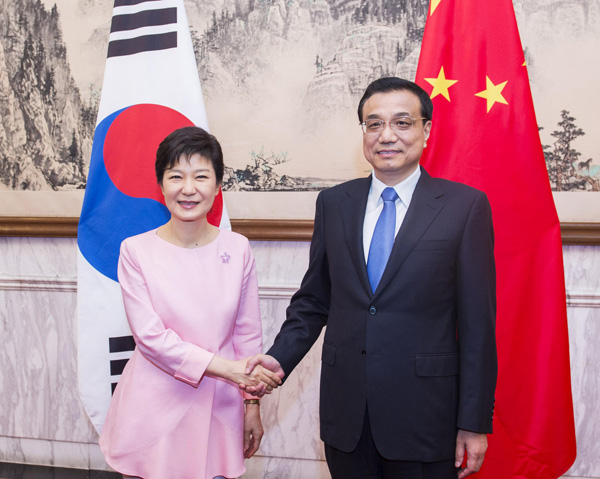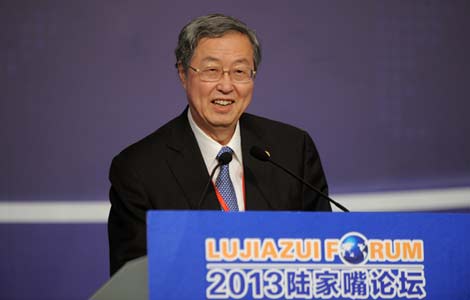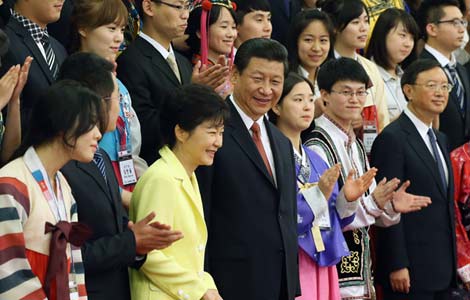Li: Pragmatic cooperation with ROK should deepen
Updated: 2013-06-29 04:02
By Li Jiabao (China Daily)
|
||||||||
China and the Republic of Korea should deepen pragmatic cooperation in fields including economy, trade, investment and new energy with a long-term view, Premier Li Keqiang said when meeting ROK President Park Geun-hye on Friday.
China has a huge market potential, Li said, and its economic development and transformation will provide a larger space for bilateral cooperation, which is not only beneficial for the two countries but for regional development in East Asia.
 |
|
Chinese PremierLi Keqiang(R) meets withSouth Korean President Park Geun-hye in Beijing, capital of China, June 28, 2013. [Photo/Xinhua] |
During a business forum held in Beijing on Friday, Park said that a free trade agreement with China will create a fundamental framework to expand economic cooperation, as she urged improvements in bilateral economic ties.
"As the economies of China and South Korea develop, we need a solid framework for economic cooperation, and the bilateral FTA will serve as that."
Park is on her first state visit to China, which lasts from Thursday to Sunday, after taking office in February.
China and South Korea started bilateral FTA negotiations in May 2012 and the sixth round of talks will be held in Busan, South Korea, in early July.
"Economic cooperation has lifted bilateral ties over the past decades. Now the focus should shift to quality improvement of bilateral trade, from an expansion in size," said Park.
"Economic cooperation over the next two decades will lie in high value-added industries, compared with investment and trade over the past two decades."
She added that the two countries can achieve huge synergies with cooperation in emerging industries, including new energy, new materials and environmental protection.
China is South Korea's largest trading partner and bilateral trade was worth $256.3 billion in 2012, a 4.4 percent rise from the year earlier. The two governments have set a trade goal of $300 billion by 2015.
But Park said she expects a structural change in the nature of China-South Korea trade.
"In the past, bilateral trade was mainly intermediate goods used for the manufacturing or assembling of exports to Europe or North America — a trade structure that is easily affected by importers' economic performance," she said.
"Now the two countries need to expand their consumer markets at home and advance the participation into each other's markets, to build a stable trade structure which is not so open to external impacts."
Wan Jifei, chairman of the China Council for the Promotion of International Trade, a co-organizer of Friday's forum, said that as the world economy continues to be confronted with multiple economic challenges, China and South Korea "should further advance communications and facilitate trade and investment".
He added: "This bilateral FTA should be signed as soon as possible to add new vigor to bilateral economic cooperation."
Wan called for deeper and broader economic cooperation between the two, in view of the great potential shared by them both in emerging industries such as energy conservation and environmental protection, renewable energy, biotechnology and IT.
Most Viewed
Editor's Picks

|

|

|

|

|

|
Today's Top News
China's outbound tourists surpass 37 million
Mandela's condition 'improving' as Obama flies in
US Senate approves immigration reform
Obama visits Mandela
Premier Li: Target for growth can be met
Prudent monetary policy to stay
Polluted river lifts cancer deaths
Looted relics return to China
US Weekly

|

|















